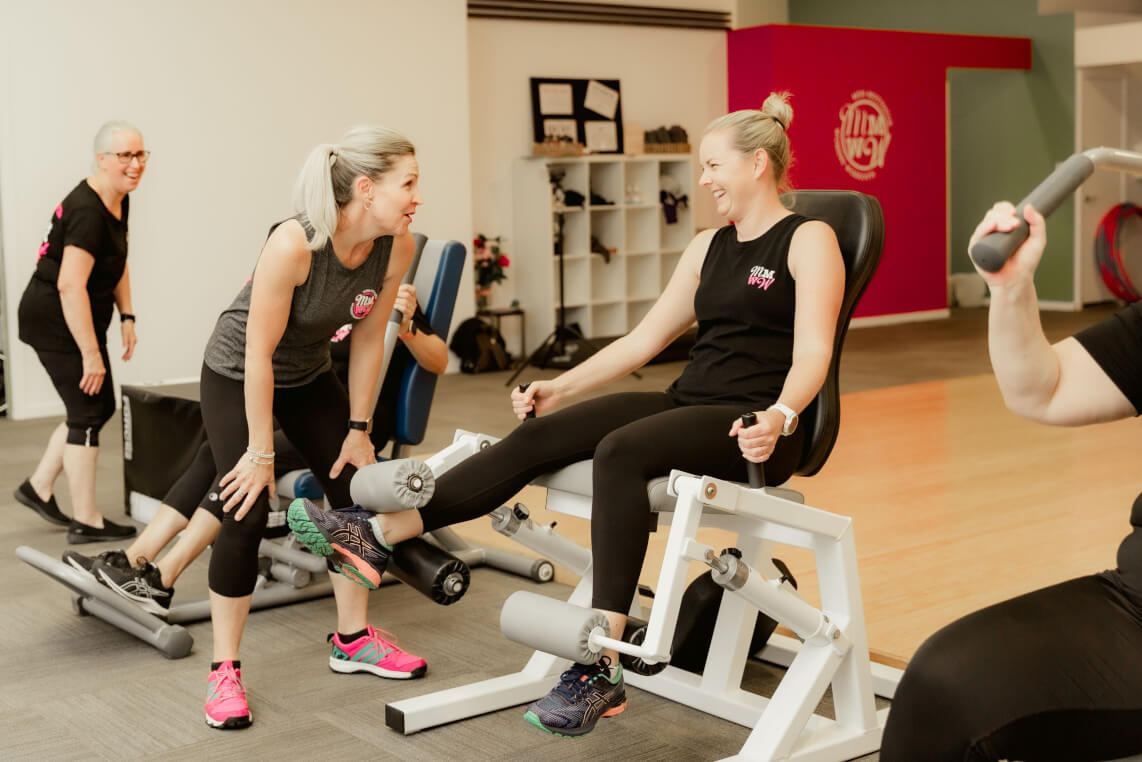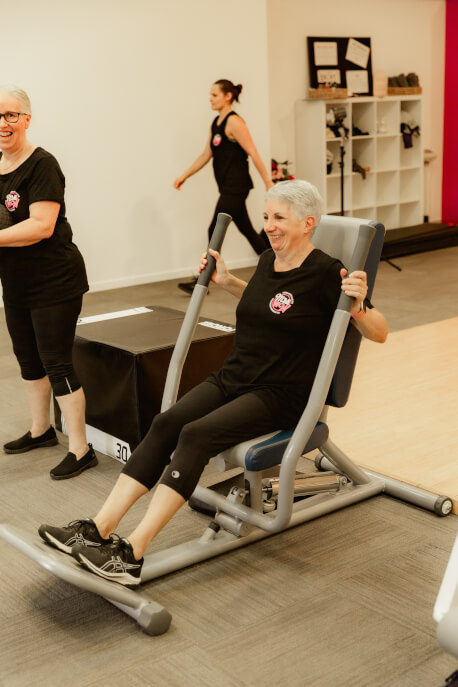
Fitness Update - November
3 Common Fitness Myths Holding Women Back—and the Truths You Need to Know
Posted December 2024
Welcome to the November Fitness Update!
When it comes to fitness, women often hear a lot of advice, some of which is based more on myth than science. Unfortunately, these myths can hold you back from getting the best results and even discourage you from trying new things. I am here to break down three of the most common myths that many women encounter—and offer solutions that actually work.
Reality: One of the biggest misconceptions in women’s fitness is the fear that lifting weights will lead to a bulky or “too muscular” appearance. In reality, it’s incredibly challenging for women to gain that kind of muscle mass without a specialised, high-calorie diet and training program. Women naturally produce far less testosterone than men, making it difficult to “bulk up” from regular strength training alone.
Solution: Strength training isn’t about getting big—it’s about getting strong. When women lift weights, they build lean muscle that helps create a toned, defined look, not a bulky one. More importantly, lifting weights is essential for long-term health. Regular strength training helps to improve bone density, which is crucial in reducing the risk of osteoporosis as we age. Studies have shown that weight-bearing exercises stimulate bone growth, providing a natural defence against fractures and bone loss.
Strength training also helps with hormone regulation. It can support healthy levels of key hormones like cortisol and insulin, which play a role in stress management and metabolism. Plus, many women find that lifting weights improves their mental health by boosting self-confidence and reducing stress and anxiety.
Reality: It’s a common belief that drastically cutting calories is the fastest way to lose weight. While a calorie deficit is necessary for weight loss, restrictive dieting can do more harm than good. When you cut calories too severely, your body enters “starvation mode,” slowing down your metabolism to conserve energy. Over time, this metabolic adaptation can actually make it harder to lose weight and easier to regain it, often leading to a cycle of yo-yo dieting.
Restricting calories can also disrupt your body’s natural hunger and fullness signals, making it harder to develop a healthy relationship with food. Additionally, avoiding entire food groups can leave you deficient in essential nutrients, affecting everything from energy levels to immune function.
Solution: Instead of focusing on what you can’t eat, focus on what you can add to your diet to support energy and health. A balanced approach to eating includes all three macronutrients—carbohydrates, fats, and proteins—each of which plays a unique role. Carbohydrates provide quick energy, essential for workouts and daily activities; proteins are vital for muscle repair and recovery; and healthy fats support brain health, hormone balance, and satiety.
Additionally, choosing nutrient-dense foods like vegetables, whole grains, lean proteins, and healthy fats can help you feel satisfied while fueling your workouts and day-to-day life. Balanced nutrition supports a healthy metabolism, sustainable energy, and an overall healthier body.
Reality: There’s a widespread belief that you need to be dripping in sweat for a workout to “count.” But sweating is simply your body’s way of regulating temperature—it’s not an indicator of workout quality or intensity. Sweat levels vary depending on factors like temperature, humidity, and even genetics, not just how hard you’re working.
While cardio exercises that get you sweating are great for cardiovascular health and endurance, they’re not the only important component of a fitness program. In fact, focusing solely on sweat-inducing cardio workouts means missing out on other crucial elements, like strength, balance, and core stability.
Solution: A well-rounded fitness routine includes various types of exercise, each with its own benefits. Strength training is essential for building lean muscle and supporting metabolism, while balance exercises improve stability and reduce the risk of falls and injuries. Focused core workouts help with posture, back health, and overall functional strength, supporting you in everything from everyday activities to more intense workouts.
There is, of course, a time and place for cardio. But mixing it with strength, balance, and core-focused work ensures that you’re supporting your body’s needs in a balanced way. These workouts don’t always leave you sweating, but they’re just as effective and play a critical role in long-term health and fitness.
At Miss Motivator, we believe fitness is about empowerment, not restriction.
Our programs are designed to help you find the balance that works for you, allowing you to enjoy the journey and make sustainable progress toward your goals.
Ready to experience a workout environment that’s focused on you and what really works?
Grab your 7-day trial pass for just $10 and join a community that’s dedicated to supporting you every step of the way.
